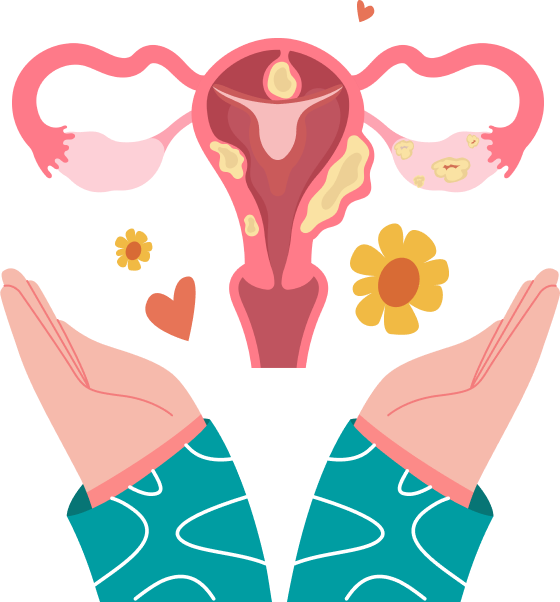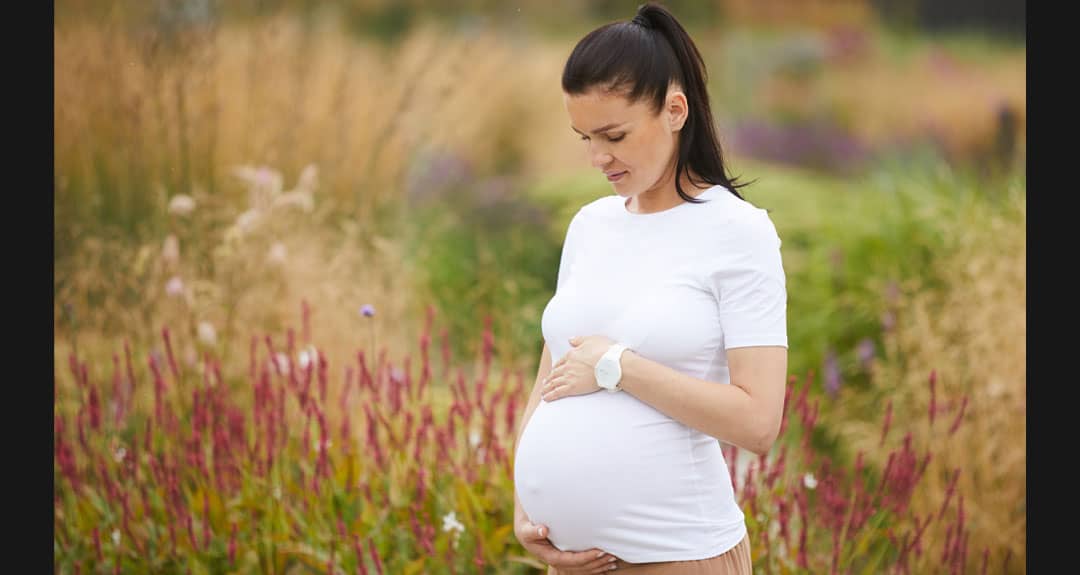Please read these terms of use carefully. by continuing to access and use this application you confirm that you accept our terms and conditions described herein. if you do not agree the terms of use, do not use this application.
Welcome to ‘Maitri’ mobile Application (defined hereunder). We are Mak & Mak Outsourcing & Services Pvt. Ltd. (hereinafter referred to as “MMOSPL”) with our registered office at 3F, 323, Suncity Success Tower, Golf Course Extension Road, Sector-65, Gurgaon, Haryana, 122101. We operate this mobile Application.
The terms “You” or “Your” refer to you as the user (irrespective of whether You are a Registered User (defined hereunder), HSP Registered User (defined hereunder) or a Non-Registered User (defined hereunder)) and the terms “MMOSPL”, “We”, “Us”, “Company”, “Our” and/or “Maitri” refer to MMOSPL. In the event the Application is being used by a person on your behalf, the expression “You” or “Your” or the “User” shall apply to such person as well.
These Terms of Use, Privacy Policy, together with any additional Service specific terms and conditions, other policies which may be applicable to specific portions of the Application and any disclaimers which may be present on the Application are jointly referred to as “Agreement” and constitute the terms of Your access and use of the Application and the Services (defined hereunder). Where any part of the Agreement is modified in accordance with the terms of the Agreement, the Agreement shall be enforceable in its modified form.
The Agreement supersedes all previous oral and written terms and conditions (if any) communicated to You.
The Application
MMOSPL is the author and publisher of the Application, which shall mean the mobile application, website, blog contained therein, queries answered by Our team over email, phone or any other medium and all variants, tools, editions, add-ons, and ancillary products or services of the Application (including all files and images contained therein or generated by the software, and accompanying data, herein referred to individually or collectively as “Application”). The Application may be used by Users (defined below) to avail Services and/or to find, access, manage and organize information including but not limited to personal or non-personal information, doctor/consultant information, appointments, prescriptions, laboratory and diagnostic tests, electronic medical records, billing, inventory, accounting details and other relevant information.
Users
“Registered Users” are users
- Who have successfully registered themselves with MMOSPL through the Application by providing information that is true and accurate, and who can log on to their account on the Application by providing their username and password (“Primary User”); or
- “Healthcare Service Providers” or “HSPs” are third parties including but not limited to clinic or hospital listed on the Application, also, includes their duly qualified doctors, nurses, paramedical staff, physiotherapists, consultants, medical equipment suppliers, laboratory service providers, phlebotomist, pharmacist other incidental and ancillary healthcare service providers listed on the Application and who interacts with Users as part of the Services.
- “HSP Registered Users” are Registered Users whose profile has a unique identification attached to it including but not limited to UHID (unique health identification) or UMR (unique medical record). HSP Registered Users may not be permitted to access to certain areas of the Application.
- “Non-Registered Users” are users who have not registered themselves on the Application. Non-Registered Users may not be provided access to certain areas of the Application.
- Registered Users, HSP Registered Users and Non-Registered Users shall individually or collectively be referred to as “Users”.
Access and Usage Rights of Users
Non - Registered User: A Non - Registered User is not permitted to access or make use of the Application for any purpose other than the following permitted use:
- To browse the Application without accessing any Services.
- To share the Application via social media applications.
- HSP Registered Users: A HSP Registered User is only permitted to access and use the Services provided through a particular HSP only or any other limitations and restrictions as are prescribed under the Agreement or may be otherwise communicated to HSP Registered User from time to time through any contact information shared by HSP or HSP Registered User at the time of registration.
- Registered User: A Registered User is specifically permitted to:Enjoy all the access and usage rights of a Non-Registered User.
- Access and use the Services subject to such limitations and restrictions as are prescribed under the Agreement or may be otherwise communicated to Registered User from time to time through any contact information shared by such user at the time of registration.
Content
The data and information available on the Application may be categorized as follows
- Data and information generated or provided by Unregistered Users, HSP Registered Users and Registered Users on the Application (“User Content”).Data and information which MMOSPL (through itself, its contractors or any of its third-party) has generated or procured for the Application and includes data and information generated or provided by HSP (“MMOSPL Content”).
General Terms of Use
As required by Indian law, You must be at least 18 years of age or older, have a sound mind and not debarred by any law to contract in order to access and use the Application and Services as a Primary User. In case the Services are to be accessed or used by a minor (i.e. a person less than 18 years of age), then only the legal guardian/representative of such person shall register himself/herself as a Primary User.
This Agreement is published in compliance of, and is governed by the provisions of Indian law. You will use the Application and the features provided on the Application only in relation to and in compliance with all applicable Indian laws. You will not use this Application, or any feature provided on the Application for any purposes not intended under this Agreement.
You should limit the use of this Application to India only. We are not responsible if You avail any Service from outside India. You must have the advice and/or prescription given by such HSP validated by a local registered medical practitioner.
Certain Services are location specific. Depending on Your location certain Services may not be available to You.
You will not deliberately use the Application in any way that is unlawful or harms MMOSPL, its directors, employees, affiliates, distributors, partners, service providers and/or any User and/or data or content on the Application.
You will not use the Application for any illegal, immoral, offensive purpose or for any other purpose that may infringe or violate any applicable laws and regulations.
You will not interfere, disrupt or hamper with the proper functioning of the Application.
As a User, You may have access to business sensitive information. You shall not share such information with MMOSPL’s direct competitors or use it for competitive purposes, except with MMOSPL’s prior written consent.You understand that as part of Your registration process as well as in course of Your use of the Application, You may receive communication from MMOSPL on Your registered contact information. These communications will relate to Your registration, Services provided by MMOSPL, transactions that You carry out through the Application and any such information found suitable of Your attention by MMOSPL. Please note that MMOSPL will send these communications only to the contact details that You or HSP provide on the Application. It is Your responsibility to ensure that You provide the correct contact details for the transaction You wish to enter. Further, MMOSPL may also send notifications and reminders to You for the features that You may be using on the Application. By accepting these Terms of Use You provide Us Your consent to collect Your medical records and/or reports from HSP. MMOSPL may also share the dynamic password with You in order to facilitate various Services of the Application. You hereby consent to receive such communications from MMOSPL.
You will not share Your log-in details with anyone. You are responsible for maintaining the confidentiality of Your account access information and password. You shall be responsible for all usage of Your account and password, whether or not authorized by You. You shall immediately notify MMOSPL of any actual or suspected unauthorized use of the Your account or password. MMOSPL will not be liable for Your losses caused by any unauthorized use of Your account. You may be liable for the losses of MMOSPL or others due to such unauthorized use.
Services
MMOSPL a transaction facilitator
Through the Application, MMOSPL facilitates the purchase of Services offered for sale by HSP. You understand and agree that MMOSPL merely provide hosting services to You. All Services offered for sale on the Application are owned by HSP. MMOSPL has no control over HSP Services and does not originate or initiate the transmission or select the sender/recipient of the transmission. The authenticity and genuineness of the Services made available by HSP through the Application shall be the sole responsibility of HSP. You understand and agree that Application shall have no liability with respect to the authenticity of the Services being facilitated through the Application.
Use of Services
The Application may be used to access a variety of healthcare and related services. Depending on the status of Your registration and subject to the limitations and restrictions imposed by the Agreement or by MMOSPL, You may avail following services through the Application
- Online Consultations (through Maitri care team doctors and/or HSP).
- Lab/sample collections.
- Booking radiology services.
- Such other services as may be intimated from time to time.
- The aforesaid list of services is jointly referred to as “Services.”
The Services are non-transferable and only cover the Registered User.You agree and acknowledge that the property and title in the drugs ordered by You shall stand immediately transferred to You upon the dispensation of drugs and the raising of the invoice at the concerned HSP. Accordingly, the sale of drugs is concluded at the concerned HSP itself. Post Your acceptance of the drugs, the related Services would not be eligible for any exchange or refund.
The minimum age requirement of 18 years does not apply to any Service that is open to children and adolescents from Age 1-18.
Online Consultations
You are advised not to use the Maitri online consultation services in case of any medical emergencies like accidents, bleeding injuries, burns, sexual abuse/assault, medicolegal cases or if You are in a critical condition.
If You are a Registered User but do not satisfy the above pre-conditions, please do not avail the online consultation services. MMOSPL will not be responsible or liable for any harm or loss that You may suffer if You elect to access those Services.
All Users, who are patients, and who opt for online consultation services, may be required to undergo an initial medical examination to ascertain and record medical history, medication history and medical status before video-consulting support can be provided.
Online consultation services are provided at the express consent by the User and the same shall not be construed as a replacement for physical consultation and the Services are meant for general consultation only. If after online consultation, if it is recommended to undergo any diagnostic tests or if You are issued with a Prescription, the same are provided based on the information and preliminary examination, hence the same shall not be treated as accurate, final and conclusive. HSP reserves their rights to modify the prescription or recommended diagnostic tests if the User provides any additional information in future consultation.
Online consultation services may be provided via the following communication channels zoom calls, Google Meet, Call Center Helplines / Telephones / Mobiles / IM Chats / Online Chats / SMS & Text Chats with and without camera and video facilities at the sole discretion of MMOSPL. Reasonable efforts will be made to protect Your privacy and confidentiality across Health Consultation Services.
MMOSPL’ rights to the application and mmospl content
MMOSPL respects the intellectual property rights of others, and We expect the same from You. The Application, User Content and the MMOSPL Content are protected by applicable intellectual property laws.
MMOSPL’s Rights to the Application and MMOSPL Content
- All intellectual property in and to the Application and all software, techniques and processes used in connection with the aforesaid, belongs exclusively to MMOSPL or its licensors. As a User, You are granted a limited, non-exclusive, non-transferable license to access and use the Application as per the terms of the Agreement. Through Your use of the Application, by no means are any intellectual property rights impliedly or expressly granted by MMOSPL to You in respect of such works.
- MMOSPL and/or its licensors assert all proprietary rights in and to all names and trademarks contained in the Application. Notwithstanding the generality of the foregoing, the name and logo of “Maitri” is/are the trademarks and copyright (inclusive of any other applicable intellectual property right) of MMOSPL and/or its licensors. Any use of such name or logo, unless otherwise authorized in a written agreement, will constitute an infringement upon the trademark and copyright (or any other such intellectual property right) of MMOSPL and/or its licensors and may be actionable under applicable laws.
- Except as stated otherwise in this Agreement, all MMOSPL Content (including all intellectual property rights to such content) is owned exclusively by MMOSPL and/or its licensors.
- When You use the Application in accordance with this Agreement, a limited royalty-free right is granted to You by MMOSPL to use MMOSPL Content only for personal and non-commercial use in India for the term of the Agreement.
- Unless explicitly stated herein, nothing in this Agreement shall be construed as conferring on You any license to intellectual property rights, whether by estoppel, implication, or otherwise.
- Unless expressly authorized by MMOSPL, You agree not to reproduce, modify, sell, distribute, mirror, frame, republish, download, transmit, or create derivative works of the MMOSPL Content, in whole or in part, by any means. You must not remove or modify any copyright or trademark notice, or other notice of ownership.
Rights in User Content
You agree that You are the sole owner of all rights (including all intellectual property rights) in the User Content that You post on the Application or provide to MMOSPL.
To the extent permissible by law, You hereby grant MMOSPL a perpetual, non-revocable, worldwide, royalty-free license to make use of such User Content including the right to copy, distribute, display, reproduce, modify, adapt, the User Content, and create derivate works of the User Content.
User Consent & Privacy
You have the option of uploading Your identifiable health information including physical, physiological and mental health condition, and medical records and history on the Application which may be accessed by MMOSPL and/or HSPs using the Application, during the course of providing Services to You.
We may collect various personal information from You when You use the Application and for the features provided by the Application.
Our Privacy Policy sets out terms with respect to the collection, storage, use, processing, transfer and disclosure of any such personal information.
When You click on the ‘I accept’ tab at the time of registering or access the Application or otherwise provide Your personal information, You specifically consent to Our Privacy Policy & Terms of Use.
MMOSPL may disclose/transfer Your Personal Information in accordance with applicable law and for the purposes as set out in the Privacy Policy.
MMOSPL is required by law to maintain the privacy and confidentiality of Your medical information. We assure to take Your privacy seriously and to maintain privacy and confidentiality of the information provided by You to Us. We, however, do not represent, warrant or guarantee that Our safeguards to prevent unauthorized access to Your personal information is fool-proof. Further, MMOSPL may itself have to access Your medical information (medical records, consultation history, transcripts etc.) in order to investigate any deficiencies, complaints or grievances that You bring to the notice of MMOSPL. You hereby specifically authorize MMOSPL to access Your medical information in such cases.
Other Websites/Mobile Applications
You may be provided with links on the Application that direct You to third party websites / applications / content or service providers (collectively “Third Party Content”).
Links to such third party applications are provided for Your convenience only. Please exercise Your independent judgment and prudence when visiting / using any Third Party Content via a link available on the Application. Should You decide to click on the links to visit such Third Party Content, You do so on Your own volition. Your usage of such Third Party Content is subject to the terms of use of the respective Third Party Content and MMOSPL is not responsible for Your use of any Third Party Content.
We do not extend the Agreement to any other websites/applications except for this Application. We do not make any warranty or give any security to the personal information disclosed by You to the other websites/applications, even if such websites/applications are linked to our Application or they are using our Application link.
MMOSPL does not endorse any Third Party Content that You may be directed to from the Application.
MMOSPL Responsibilities
HSPs
MMOSPL will make available qualified HSPs to render Services after carrying out appropriate background and reference checks.
It is hereby clarified MMOSPL’ obligation to carry out appropriate background and reference checks and to validate qualification of HSPs does not go beyond ensuring that the HSPs were registered with relevant state professional councils or central professional council at the time of engagement and had a certificate of good standing from the relevant professional council at the time engagement.
Service Levels
Subject to applicable law, MMOSPL will use commercially reasonable efforts to make the Services available to Registered Users at working hours at working days except for public holidays and otherwise notified to you from time to time, except for
- Services that involves product delivery.
- planned downtime that will be communicated in advance to Registered Users.
- any unavailability caused by circumstances beyond MMOSPL’s reasonable control, including without limitation, cyber-attacks, acts of God, acts of government or regulatory authority, any mandate under applicable law, flood, fire, earthquakes, civil unrest, acts of terror, strikes or other labor problems, or internet service provider or/and web hosts failures or delays, denial of service attack, and/or Your acts or omissions, equipment, software or any other technology of Your, or any third party acting on Your behalf.
- When such Service is rendered under a time-schedule, in which case, the obligation of MMOSPL under this clause shall be limited to making available such Service during the time-schedule. This obligation will also be subject to (2) and (3) above.
- When the Registered User is outside the operational coverage of Service.
MMOSPL has no responsibility towards Non-registered User for providing Services.
For the avoidance of doubt, it is hereby clarified that MMOSPL’ responsibility towards Registered User will be limited to the provision of the Services as per the terms and conditions of the Agreement.
If MMOSPL suspects any illegal, wrongful or fraudulent activity on the Application by any User, notwithstanding any other rights MMOSPL may have against such User, MMOSPL reserves the right to inform the relevant government or law enforcement authorities. MMOSPL will cooperate in all investigative procedures or requests for access / information initiated by any such government or law enforcement authorities.
MMOSPL reserves the right to add new functionality, remove existing functionality, and modify existing functionality to its Services as and when it deems fit, and make any such changes available in newer versions of Application at its discretion. All Users of its Services will be duly notified upon release of such newer versions and MMOSPL reserves the right to automatically upgrade all Users to the latest version of its Services as and when it deems fit.
The Application and Services may be subject to certain limitations, such as, limits on storage space, limit on bandwidth, unexpected downtime, unavailability of HSPs due to unforeseen circumstances, etc.
MMOSPL reserves the right to schedule/reschedule/cancel appointments and swap HSPs at any time without prior intimation.
MMOSPL reserves the right to refuse Service at any time without providing any reasons. The terms applicable to refund and cancellation are specified below.
Legal Compliances
MMOSPL will strictly adhere to and adopt all reasonable measures to ensure compliance to all central and state government regulations and directives as applicable from time-to-time.Data Recording, Storage, Encryption & Usage
The information stored on the Application may be entered by You or by a HSP in the course of services provided by MMOSPL. The information collected as part of the Services may be stored on Your mobile device as well as on a third-party cloud platform (“Cloud Service Provider”) or server (“Storage Service Provider”).
All video-consultations / IM chat consultations / text messages / audios / videos / transcripts / prescriptions / email and hard copy correspondences between Users and HSP Acquired Users who are patients, and HSPs engaged by MMOSPL shall be recorded, saved and stored for record purposes and in the event such records are required to be produced as evidence on the direction of a court of law. MMOSPL may review this data from time to time for quality evaluation purposes. However, under normal circumstances, MMOSPL will not access any information that identifies You and shall either omit, mask or anonymize Your personal information at the time of quality evaluation.
It is hereby clarified that MMOSPL does not have the obligation to pre-screen or monitor User Content at any time. However, MMOSPL may elect to monitor any User Content and may modify or remove any User Content from the Application if MMOSPL determines in its sole discretion that such User Content is in violation of this Agreement or any applicable law and best practices. Where MMOSPL removes any User Content from the Application, MMOSPL will make reasonable efforts to inform the Registered User who had posted such User Content.
All User Content shall be recorded, saved and stored electronically on a secure cloud database/server managed by the Cloud Service Provider / Storage Service Provider. MMOSPL shall take best efforts to ensure that the Cloud Service Provider/ Storage Service Provider uses appropriate levels of encryptions to protect data and takes all necessary precautions. MMOSPL will however not be responsible for any cyber data theft from its Application or the Cloud Service Provider’s/ Storage Service Provider’s databases.
MMOSPL shall maintain a detailed transaction & purchase history of Users online.
MMOSPL reserves the right to permanently delete User Content in case the User does not avail a Service for a period of three years.
User responsibilities
Your use of this Application shall be subjected to the following terms and conditions
- You will observe and comply with the terms and conditions of the Agreement in letter and spirit.
- You will provide full and accurate information about Your health, medical history and personal care needs.
- You will strictly adhere to the advice and instructions given by HSPs from time to time;You will not delete or modify any content of the Application including but not limited to, legal notices, disclaimers or proprietary notices such as copyright or trademark symbols, logos, that You do not own or have express permission to modify.
- You will not decipher, decompile, reverse engineer, or disassemble the MMOSPL content.
- You will not use any engine, software, tool, agent or other device or mechanism (such as spiders, robots, avatars or intelligent agents) to navigate or search the Application.
- You will not remove any copyright, trademark registration, or other proprietary notices from the Application. You further agree not to access or use this Application in any manner that may be harmful to the operation of this Application or its content.
- You will not frame or hotlink or deeplink any MMOSPL Content.
- You will not use the Application and / or Services in any way that is unlawful, or harms MMOSPL or any other person or entity, as determined in the MMOSPL’s sole discretion.
- You will not engage in any form of antisocial, disrupting, or destructive acts, including “flaming”, “spamming”, “flooding”, “trolling”, “phishing” and “griefing” as those terms are commonly understood and used on the Internet.
- You will not host, display, upload, modify, publish, transmit, update or share any information that: belongs to another person and over which You does not have sufficient legal rights.
- is grossly harmful, harassing, blasphemous defamatory, obscene, pornographic, paedophilic, libellous, invasive of another’s privacy, hateful, or racially, ethnically objectionable, disparaging, relating or encouraging money laundering or gambling, or otherwise unlawful in any manner whatever;harm minors in any way.
- infringes any patent, trademark, copyright or other proprietary rights(se), violates any law for the time being in force;
- deceives or misleads the addressee about the origin of such messages or communicates any information which is grossly offensive or menacing in nature.
- impersonate another person.
- contains software viruses or any other computer code, files or programs designed to interrupt, destroy or limit the functionality of any computer resource;threatens the unity, integrity, defence, security or sovereignty of India, friendly relations with foreign states, or public order or causes incitement to the commission of any cognizable offence or prevents investigation of any offence or is insulting any other nation.Without prejudice to the rights that MMOSPL may have under other provisions of the Agreement, where MMOSPL has reasons to believe that a User has violated a term or condition of the Agreement, then MMOSPL shall, in its sole discretion.
- Suspend provision of Services; and/or.
- Suspend the account of the User until there is enough information available with MMOSPL to determine whether the User had violated a term or condition of this Agreement; and/or.
- Suspend or terminate the account of the User where MMOSPL has determined that the User had violated a term or condition of this Agreement; and/or.
- Approach User to make good that loss or damage caused to MMOSPL as a pre-condition to revoke the suspension; and/or
- Take any such action against the User as it permissible under law; and/or.
- Raise invoice of Services availed by the User; and/or.
- Disable and/or delete such User Content that is in contravention of the Agreement while preserving such information and associated records for the purpose of production to governmental authorities for investigation purposes.
Payment, Fees and Taxes
You agree to pay all Service fees, consulting fees, reasonable out of pocket expenses and other fees applicable to Your use of the Services. While MMOSPL will strive to give You a fair estimate of fees in advance, the actual fee may be dependent on the type of Services that You purchase and may vary based on the number or duration of the Services subscribed to.
You are solely responsible for payment of all taxes, legal compliances, statutory registrations and reporting. MMOSPL is in no way responsible for any of the taxes except for its own income tax.
The fees could be paid online through the facility made on the Application. Third parties support and services are required to process online fee payment. MMOSPL is not responsible for any loss or damage caused to User during this process as these third parties are beyond the control of MMOSPL.
All fees are exclusive of taxes. The payment process would be complete only on receipt of the amount to MMOSPL’ designated bank account.
An invoice for fees against Services received by You will be generated periodically and will be intimated to You on the Application and/or on Your contact details. You may be requested to make the payment immediately or on a deferred basis, at the sole discretion of MMOSPL. In case the fees against Services are not received within the requested timeframe, MMOSPL reserves the right to stop provision of Services on immediate basis, permanently delete Your account and all information stored against your account and, suspend or terminate the Agreement. You will be solely responsible for the consequences of non-payment for the fees within the requested timeframe and have no right of recovery in any form against MMOSPL.
In order to process the payments, MMOSPL might require details of Your bank account, credit card number etc. Please check our privacy policy AVAILABLE HERE on how MMOSPL uses the confidential information provided by You.
MMOSPL shall send an intimation of fee receipt through an email and/or your contact details within seven (7) working days of fee receipt from You.
Offers and Promotions
MMOSPL and HSP may occasionally promote their Services on the Application available for you to purchase. We try to encourage HSP to offer good quality Services and materials at competitive prices but we have no control over them, we do not endorse the Services they offer, or give you any assurance that they will be suitable for your needs. It is your responsibility to satisfy yourself in this regard and we have no liability in connection with the same. All promotions are for limited period and subject to special terms and conditions, which are in addition and not to the terms and condition stated herein.
For the avoidance of any doubt, it is hereby clarified that any reference of the term ‘offer/offered for sale by the HSP’, as appearing in the Agreement, shall be construed solely as an ‘invitation to offer for sale’ by any such HSP.
Activation, Delivery, Refunds & Cancellations
Activation Policy
For all MMOSPL Services that require delivery, the estimated delivery date shall be provided to You on the Application at the time of placing the order.
You should check the items dispensed to you carefully promptly upon receipt. If you believe there may have been a dispensing error or goods have been tampered, you should contact us immediately and should not take the goods or use any of the items. Any complaints with regard to shortage of Goods, defects or otherwise will not be entertained by MMOSPL once the same are accepted at the time of delivery.
Refund & Cancellation Policy
For internet-based subscription Services, You are free to cancel the Service at any time. MMOSPL shall refund any unexpended advance fees paid by You at the time of cancellation of the Service. In case You wish to seek a refund of the advance paid by You because You do not agree with a modification to the Agreement, please write to contact@maitriwoman.com. We will process refund of the unexpended amount.
Subjected to terms under clause ‘Use of Services’ of this Agreement for all home-based Services, MMOSPL shall provide refund of any unexpended advance fees paid by You if
- MMOSPL is not able to deliver the Services and/or Products for any reason. In case You wish to seek a refund of the advance paid by You because You believe.
- MMOSPL Service is not as per the specification provided on the Application or in case of any valid discrepancies please write to contact@maitriwoman.com within 15 days from availing the services. MMOSPL will process a refund of the unexpended amount provided after internal investigation confirms the claim made by you. The conclusion of the internal investigation will be in MMOSPL’s sole discretion. MMOSPL is not liable to share the internal investigation details with You.
Patient Emergencies
The Services are not a replacement for emergency services offered at hospitals and should not be accessed if the patient is in a critical condition. In Medical Emergency (defined hereunder), please contact emergency services and/or rush to the nearest hospital.
“Medical Emergency” will include a serious and unexpected situation that may involve illness or injury and requiring immediate medical attention in the absence of which, possess an imminent threat/risk to life and can potentially lead to death in the absence of the medical attention. In such situation patient (adult and minor) may undergo through any or multiple of the following conditions:
- Development of chest pain.
- Sudden breathing difficulty.
- Inability to speak.
- Inability to move any of the body parts.
- Loss of consciousness.
- Sudden loss of vision and/or hearing.
- Not oriented to surrounding.
- Sudden abnormal behavior.
- Sudden irritability;extreme lethargy.
- Extreme discomfort.
- Sudden worsening of any pre-existing medical conditions.
- Sudden development of severe pain.
Representations and Warranties
By Using This Application, You hereby represent and warrant that
- You are 18 years of age or older and that Your use of the Application shall not violate any applicable law or regulation.
- Where a minor may access or use the Application or Service, You will ensure that such access or use happens through Your account and under Your personal supervision. Further, You accept to be accountable and liable for the activity of the minor on the Application, including in respect of the Services availed on the Application.
- All registration information You submit is truthful and accurate and that You agree to maintain the accuracy of such information.
- You as a Registered User will use the Application solely for Your personal and non-commercial use. Any use of this Application or its content other than for personal purposes is strictly prohibited.
MMOSPL represents and warrants that:it is a company duly organized under the [Companies Act, 2013] and has the power and authority to provide the Services and the Application.
- it has all permits, approvals and licenses necessary to carry out the Services and in fulfilling its obligations hereunder.
- by entering into this Agreement, MMOSPL does not violate any of the previous arrangements entered into with other entities to which it is a party.
Disclaimers
You understand that there are inherent risks involved in receiving medical services over a mobile/computer platform, which include:
- Information transmitted may not be sufficient (e.g., poor resolution of images) to allow for appropriate medical decision making by a HSP.
- Your HSP may neither be able to provide medical treatment to You nor provide for or arrange for care that You may require in the case of an emergency.
- Delays in medical evaluation and treatment could occur due to deficiencies or failures of the Application.
- Security protocols could fail, causing a breach of privacy of Your confidential medical information.
- A lack of access to complete medical records may result in errors in medical judgment.
User may expect the anticipated benefits from the Services provided by MMOSPL, HSPs and its authorized representatives, but no results can be guaranteed. User’s condition may not be cured or improved, and in some cases, may get worse.
MMOSPL hereby disclaims any responsibility towards Users in terms of development, maintenance and updating of the Application.
Any modification, development, maintenance or updating of the Application and any modification, transfer, license or assignment of the rights in the Application shall be done by MMOSPL as per its sole judgment and in its sole discretion.
The Application and Services provided by MMOSPL is provided “as-is,” as available, and without any warranties or conditions (express or implied, including the implied warranties of merchantability, accuracy, fitness for a particular purpose, title and non-infringement, arising by statute or otherwise in law or from a course of dealing or usage or trade). To the fullest extent permitted by law, MMOSPL disclaims all liability arising out of the User’s use or reliance upon the Application, the Services, the MMOSPL Content, representations and warranties made by MMOSPL or any opinion or suggestion given or expressed by MMOSPL or its contractors and agents (including HSPs).
Specifically, MMOSPL disclaims any liability arising out of:
- Any pre-existing medical condition.
- Any adverse drug reaction (due to any act or omission based on information found on the Application, or otherwise).
- Sudden escalation of a prior medical condition or medical situations that occur on account of omission of critical and material health information by a User.
MMOSPL assumes no responsibility and shall not be liable for ways in which Your personal data is used. It is the responsibility of You alone to ensure that Your personal data is used in compliance to applicable privacy laws.
MMOSPL assumes no responsibility, and shall not be liable for, any damages to, or viruses that may infect User’s equipment on account of User’s access to, use of, or browsing the Application or the downloading of any material, data, text, images, video content, or audio content from the Application. If a User is dissatisfied with the Application, User’s sole remedy is to discontinue using the Application.
Neither MMOSPL nor its contractors and any third-party agents (including HSPs) shall be liable to a User, monetarily or otherwise, for an occurrence wherein no medical or procedural negligence of MMOSPL or its contractors and agents is proven.Use of the Application does not include the provision of a computer or mobile device or other necessary equipment to access it. To use the Application You will require internet connectivity and appropriate telecommunication links. MMOSPL shall not have any responsibility or liability for costs incurred in procuring any equipment or telephone or other costs you may incur in connection with the use of the Application.
Information regarding HSP and Services
Information regarding HSP and MMOSPL Services is intended for general reference purposes only. Such information often changes frequently and may become out of date or inaccurate. You are encouraged to independently verify any such information You see on the Application with respect to a HSP that You seek to engage through the Application.
MMOSPL disclaims any representation and/or warranty for the security, reliability, quality, timeliness, and performance of (i) the application and its features; (ii) hsp information on the application; (iii) any service information, content or advice available on or received through the application (iv) access to or alteration of user content or mmospl content (v) transmissions or data and (vi) any other matter relating to the application and / or services.
mmospl makes no warranty or representation that any errors in the application will be corrected except as required by law.mmospl assumes no responsibility and/or liability with respect to any information which you or a hsp may post on the application and you are solely responsible for such user content posted on the site.
you agree that the open and real-time nature of the platform make it impossible for mmospl to vouch for the validity, autheticity and honesty of user content. mmospl is not responsible for any user content on the application, or for the consequences of you reading or relying on such content.
mmospl does not provide any guarantee and shall not be held liable or responsible for the failure to send any communication, notification or reminder to you whether as a feature of the application or not.
MMOSPL shall not be responsible or liable for any breach or loss of data including personal information caused due to events beyond the control of mmospl due to technical reasons or third party actions.
Limitation of Liability
To the fullest extent permitted by law, in no event will MMOSPL or its contractors or agents (including HSPs) or any of their directors, officers, employees, agents or content or service providers (collectively, the “Protected Entities”) be liable for any direct, indirect, special, incidental, punitive, exemplary or consequential damages (including, without limitation, loss of business, revenue, profits, goodwill) arising from, or directly or indirectly related to, the use of, reliance on, or the inability to use or rely on, the Application or the Services, materials and functions related thereto whether or not MMOSPL has been warned of the possibility of such damages or could have reasonably foreseen such damages.
Notwithstanding anything to the contrary in this Agreement, in no event shall the total aggregate liability of the Protected Entities to a User for all damages, losses, and causes of action (whether in contract or tort, including, but not limited to, negligence or otherwise) arising from the terms and conditions or a User’s use of the Application exceed, in the aggregate, INR 5000 or the amount of payment against Services that has been directly received by MMOSPL from the User in the past three months, whichever is lower.
Indemnification
You hereby agree to indemnify, defend, and hold MMOSPL, MMOSPL’s contractors, agents, representatives and other authorized users (Registered and Non-Registered Users, Patients, HSPs), and each of the foregoing entities’ respective contractors, agents, representatives, service providers and suppliers, and all of the foregoing entities’ respective officers, directors, owners, employees, agents, representatives, harmless from and against any and all losses, damages, liabilities and costs arising from (i) Your use of the Application or Service (ii) Your breach of terms, conditions or provisions of this Agreement, or violation of any law, rules or regulations by the User, or due to such other actions, omissions or commissions of the User that gave rise to the claim., (iii) any negligent or intentional wrongdoing on Your part, (vi) misrepresentations or fraudulent feedback that has adversely affected MMOSPL or its Users, (v) User’s actions resulting from the User’s viewing of Content on MMOSPL Application, (vi) any legal or third party intellectual property right claim that may arise from the User Content and (vii) any such claim or liability arising out of unauthorized use of Application and content within the Application.
User Account Suspension
In the event where a User has breached the Agreement in MMOSPL’s sole judgment or when MMOSPL is unable to verify or authenticate any information provide by User to MMOSPL or when or User fails to provide the consents necessary or desirable for MMOSPL to provide the Services (or after providing such consent, later revokes), MMOSPL reserves the right to suspend and / or terminate the User’s account and/or access to the Application by blocking Your IP address or email id with or without notice to the User. Any suspected illegal, fraudulent or abusive activity may be grounds for suspending and / or terminating User account and/or User access to the Application and/or Services. Upon suspension or termination, Your right to use the features on the Application including Services shall immediately cease and MMOSPL may permanently remove or delete Your information that is available with MMOSPL, including but not limited to login and account information.
MMOSPL shall not be liable to User or any third party for any claims or damages arising out of any termination or suspension of User’s account or any other actions taken by MMOSPL in connection with such account termination or suspension.
Once User’s account has been temporarily or indefinitely suspended or terminated, User may not continue to use the Application under the same account, a different account or re-register under a new account.
Termination
This Agreement will remain in full force and effect while You use the Application in any manner or capacity.
You can terminate Your relationship with MMOSPL at any time by providing ninety (90) days’ prior written notice at contact@maitriwoman.com. We need this period to inactivate User account, only after verifying if there are any ongoing or pending Services. MMOSPL may require User to continue until the completion of an on-going Service should the situation warrant.
MMOSPL may terminate its relationship with You after providing 30 (thirty) days’ prior written notice to Your registered email address. However, it does not prejudice MMOSPL’ right to refuse Service to You without providing any reason.MMOSPL may terminate the Agreement without notice and with immediate effect where, in the sole opinion of MMOSPL:
- Any material relating to personal and medical information furnished by a User appears to be untrue.
- A User is critical or unstable or dead.
- Provision of Services poses a risk to life of HSPs.
- Financial dues have not been paid by a User within requested timeframe.
- User fails to co-operate with HSPs or MMOSPL.
- HSPs and/or other MMOSPL resources are no longer adequate, available and/or suitable to accommodate User’s health requirements.
MMOSPL reserves the right to suspended or withdrawn any non-paid version of any variant, tool, edition, add-on, and ancillary product or service of the Application from you personally or all users temporarily or permanently at any time and without notice. MMOSPL may also impose restrictions on the length and manner of usage of any non-paid version of any variant, tool, edition, add-on, and ancillary product or service of the Application for any reason. MMOSPL may change or update the non-paid version of any variant, tool, edition, add-on, and ancillary product or service of the Application without notice to you. If the need arises, we may suspend access to such part of the Application or close it indefinitely.
Applicable Law, Jurisdiction of Courts and Dispute Resolution
The information provided under this Application and the terms and conditions therein are governed by and to be interpreted in accordance with laws of India.
The parties shall be bound to submit all disputes and differences howsoever arising out of or in connection with this Agreement to arbitration by one (1) arbitrator, mutually appointed by the parties. If the Arbitrator cannot be appointed mutually, the Arbitrator will be appointed in accordance with the Arbitration & Conciliation Act 1996. The arbitration shall be governed by the Arbitration and Conciliation Act, 1996 as amended from time to time. The seat and venue of arbitration shall be New Delhi, India. Subject to the aforesaid, the competent courts of New Delhi, India shall have jurisdiction to grant urgent interim reliefs to the parties.
Miscellaneous
Severability: If any provision of this Agreement is held by a court of competent jurisdiction or arbitral tribunal to be unenforceable under applicable law, then such provision shall be excluded from the Agreement and the remainder of the Agreement shall be interpreted as if such provision were so excluded and shall be enforceable in accordance with its terms; provided however that, in such event the Agreement shall be interpreted so as to give effect, to the greatest extent consistent with and permitted by applicable law, to the meaning and intention of the excluded provision as determined by such court of competent jurisdiction or arbitral tribunal.
Notices: All notices and other communications required or permitted hereunder to be given to a party shall be in writing, in the English language, and shall be sent e-mail, or mailed by prepaid internationally-recognized courier or otherwise delivered by hand or by messenger, addressed to such party’s address as set forth below or at such other address as the party shall have furnished to the other party in writing in accordance with this provision:
- If to MMOSPL: 3F, 323, Suncity Success Tower, Golf Course Extension Road, Sector-65, Gurgaon, Haryana, 122101.
- If to You: at the email address provided by You to us when You registered as a User.
No term of the Agreement shall be deemed waived and no breach excused, unless such waiver or consent shall be in writing and signed by the party claimed to have waived or consented. Any consent by any party to, or waiver of a breach by the other, whether expressed or implied, shall not constitute consent to, waiver of, or excuse for any other different or subsequent breach.
Complete Understanding: The Agreement contain the entire understanding of the parties, and there are no other written or oral understandings or promises between the parties with respect to the subject matter of the Agreement other than those contained or referenced in the Agreement.
Force Majeure: MMOSPL shall not be liable for any downtime or delay or unavailability of the Application caused by circumstances beyond MMOSPL’s reasonable control, including without limitation, cyber-attacks, acts of God, acts of government, floods, fires, earthquakes, civil unrest, acts of terror, strikes or other labour problems, internet service provider failures or delays, or denial of service attacks.Advertisement: MMOSPL shall have the right to place advertisements and publicity materials of its choice, including that pertaining to parties other than itself for commercial use through electronic means on the Application.
Assignment: You may not assign or sub-license, without the prior written consent of MMOSPL, the rights, duties or obligations under this Agreement, in whole or in part, to any person or entity.
Conflict: In the event there is any conflict between the terms of the Agreement, the following order of prevalence shall apply: (i) any additional Service-specific terms and conditions that may be agreed by You (ii) Privacy Policy (iii) the Terms of Use and (iv) any other policies applicable to specific pages of the Application.
Survival: Even after termination, the provisions of the Agreement with respect to Platform as-is, Payment terms, Limitation of Liability, Indemnity, Intellectual Property, Dispute Resolution will continue and survive termination of this Agreement.
Modifications: MMOSPL reserves the right to modify any part of the Agreement at any time without giving You prior notice. No part of the Agreement shall stand modified unless consented to in writing by MMOSPL.
When MMOSPL updates the Agreement, We will notify you through an email. Alternatively, MMOSPL may cause Your account to be logged-off in and make Your subsequent account log-in conditional on acceptance of the Agreement.
If You do not agree to the changes, please do not access or use the Application and the Services any further.
These Terms of Use were last updated on: 5th March 2022.




 Sign in with Google
Sign in with Google








New to Maitri Woman? Sign Up